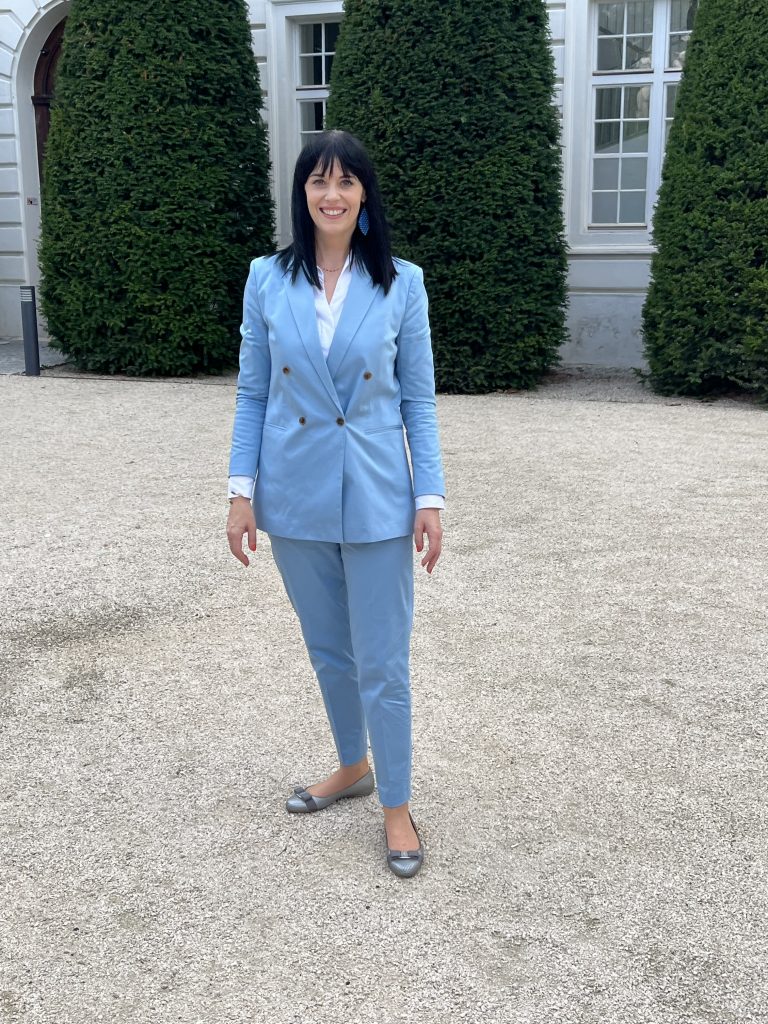L'ORÈAL For Women in Science Stipend for Aglaja Kopf
On November 22, Aglaja Kopf received a prestigious L’ORÈAL For Women in Science Stipend from L’ORÈAL, UNESCO, The Austrian Academy of Sciences and the Federal Ministry for Education, Research and Science.
The award ceremony took place in the impressive festive hall of the Austrian Academy of Sciences and was accompanied by inspiring talks from science and gender equity enthusiasts.
The For Women in Science Stipend aims at supporting excellent young women researchers in their academic careers.
With their international program, L’ORÈAL and UNESCO have awarded more than 100 laureates, five of whom have gone on to win Nobel Prizes.
The regional & national programs are supporting more than 250 talented women scientists each year.
The foundation remains determined to move steadily towards making their vision about gender equality in the STEM disciplines a reality. The overall goal is to create a scientific environment where scientists are judged purely on the merit of their discoveries and the potential of their work to change the world.
We are very proud that Aglaja is one of the supported scientists who are going to make a difference. The award is particularly designated to her work on elucidating cell-specific interactions in granulomas. Congratulations!
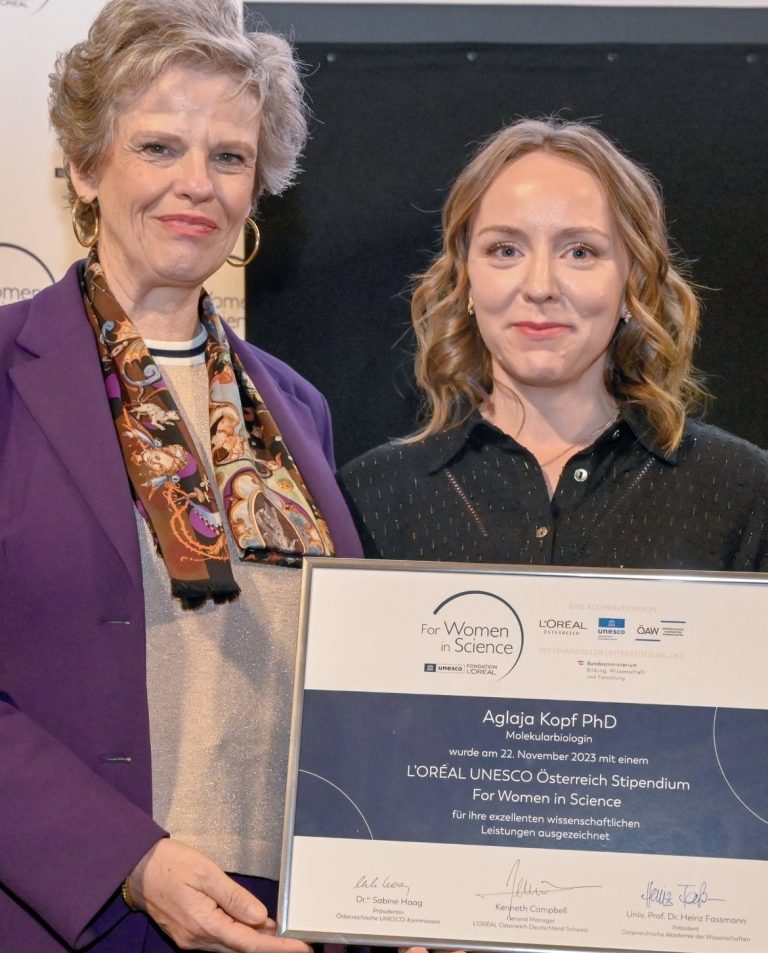
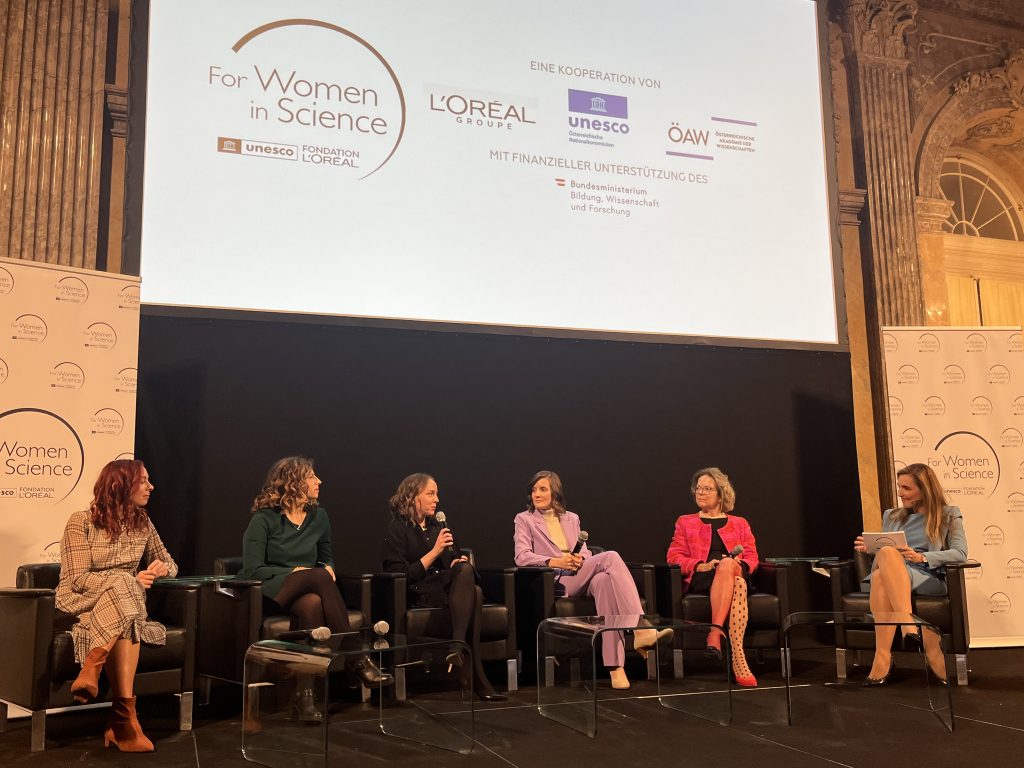
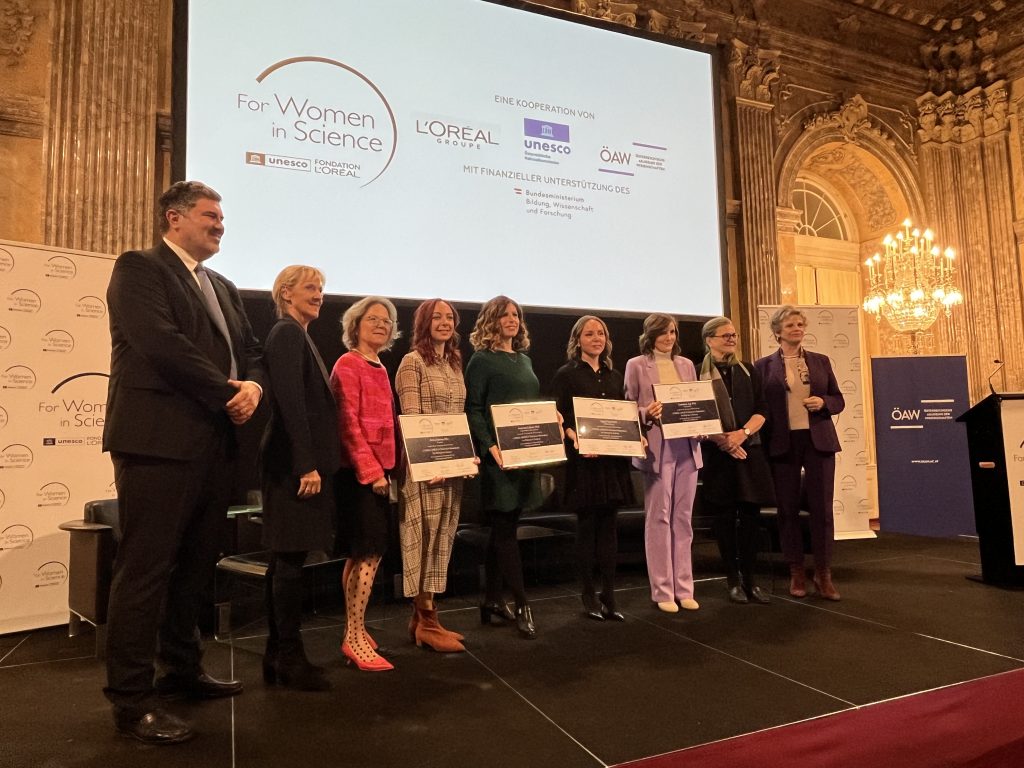
FWF ESPRIT Fellowship for Aglaja Kopf
In October, Aglaja Kopf was awarded with a highly competitive ESPRIT Fellowship by the Austrian Science Fund FWF.
Her work will dissect the cell-type specific interactions in granulomas.
Granulomatous diseases affect millions of people worldwide, including children, and usually take a chronic course with a high socioeconomic burden. Granulomas are evolutionary ancient structures and are thought to have evolved as a protective mechanism to eliminate or encapsulate harmful material. Granulomatous inflammation is a special form of chronic inflammation, the main feature of which is the presence of compact cell aggregates, especially macrophages and T cells, which are surrounded by scar tissue deposited by mesenchymal structural cells. Tissue scarring is a pathological feature of many granulomatous diseases and represents the main risk for organ transplantation because targeted therapy is not possible and organ function is lost.
Therefore, Aglaja Kopf investigates the role of granuloma-associated fibroblasts in the pathogenesis of granulomatous diseases by combining unbiased system-wide analyzes with human tissue bioengineering and state-of-the-art microscopy. In particular, the three-dimensional reconstruction of granuloma spheroids with human patient material allows a targeted analysis of cell-cell interactions at the molecular level.
Expected benefits of this work include a more coherent understanding of how fundamental cell biological functions translate into clinically relevant disorders. As she aims to understand a fundamental feature of a nearly ubiquitous cell type, the implications of these findings will be of great importance for biological processes ranging from development and regeneration to immunology and cancer biology.
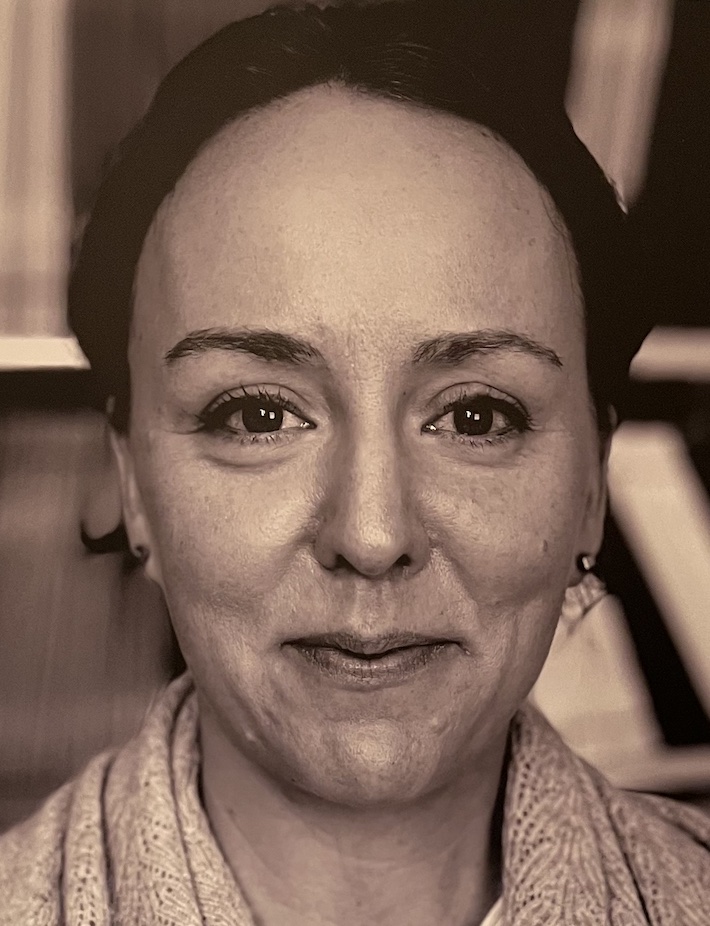
Best Poster Award at Black Sea Neurogenesis Meeting for Melissa Stouffer
In June, Melissa Stouffer was recognized with the Best Poster Award at the Black Sea Neurogenesis Meeting in Varna, Bulgaria.
Melissa’s research involves cerebral organoids, which are 3D in vitro models of cerebral development and are able to recapitulate fundamental aspects of brain development. In her study, she assesses the stem cell output from individual neural stem cells present in cerebral organoids. Furthermore, she is interested in the questions whether and how organoid stem cell output differs from an in vivo stem cell.
The results from Melissa’s studies will provide groundbreaking knowledge on how accurate such 3D systems are able to model stem cell behavior in cell culture approaches. This important benchmarking work will unravel to which degree organoids can perfectly replace animal models and which parts of organoid growth require further refinement in order to create meaningful experimental model systems.
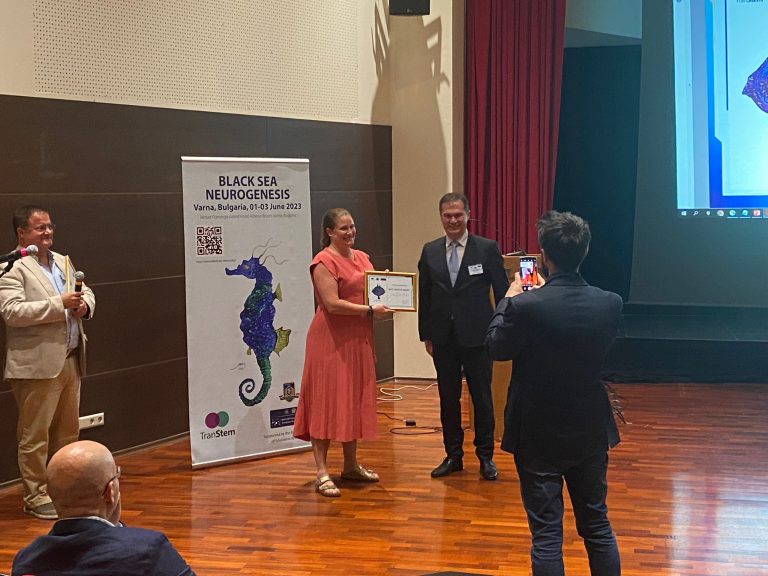
Young Investigator Award by the Medical Neuroscience Cluster for Nicole Amberg
For her postdoctoral work unraveling distinct and sequential functions of the epigenetic repressor complex “Polycomb Repressive Complex” (PRC)2 during cortical development, Nicole Amberg received the Young Investigator Award 2023 from the Medical Neuroscience Cluster of the Medical University of Vienna.
Against common believes and expectations, Nicole discovered that PRC2 is not cell-autonomously required to control neural stem cell output during the development of the cerebral cortex. She thus unravels that PRC2-dependent transcriptional control strongly depends on the genotype of the tissue-wide cellular environment.
Nicole will build on these results for her future independent research career by focusing on the molecular and cellular mechanisms involved in brain cancer formation in patients suffering from tumor predisposition syndromes. These patients harbor a gremline mutations which affects every cell in the body, hence making it difficult to understand cell-autonomous and non-cell-autonomous contributions of the mutation to tumorigenesis.
Based on her past work, Nicole hypothesizes that (1) a non-mutant stem cell nice can provide fundamental control mechanisms preventing or slowing down tumor development of individual mutant cells and (2) the identification of these control mechanisms can be used to design novel targeted therapies for syndromic patients. Nicole aims to address her hypotheses through a combination of experimental mouse models, murine organoids, patient-derived iPSCs and organoids, as well as multi parametric characterization of patient tumors.
